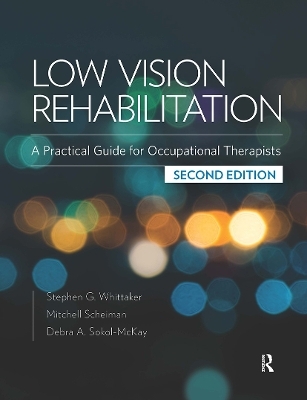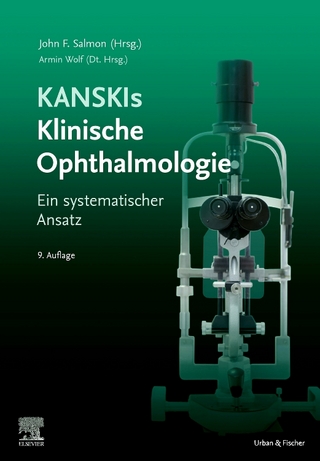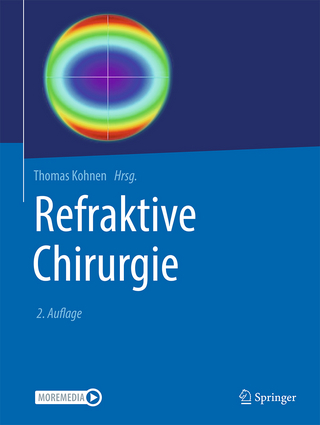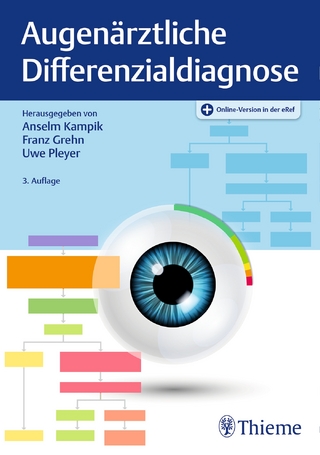
Low Vision Rehabilitation
SLACK Incorporated (Verlag)
978-1-61711-633-9 (ISBN)
New to the Second Edition: A focus on occupational performance using "whatever works," whether visual, non-visual, or a combination of these different devices and adaptive techniques; The "EPIC" Framework, a general strategy to organize a treatment plan for daily activities using visual and non-visual techniques; Access to a companion website designed as a handy clinical reference, with solutions to clinical problems easily searchable and cross-linked to related content; The "Success-Oriented Approach" to interventions based on the most recent research on cognitive disability and depression associated with low vision; Applications of the latest electronic accessibility devices including smartphones, tablets, and magnifiers that read aloud; Incorporates the AADE (TM) 7 Self-Care Behavior framework of the American Association of Diabetes Educators; Incorporates concepts from the latest edition of the AOTA Occupational Therapy Practice Framework: Domain and Process; A chapter devoted to field loss, spatial neglect and perceptual impairments resulting from acquired-brain-injury.
The latest in Medicare documentation standards including outcome to G-code conversions and ICD-10 diagnostic coding for low vision.
Stephen G. Whittaker, PhD, FAAO, OTR/L, CLVT, is an occupational therapist, certified low vision therapist and research Fellow of the American Academy of Optometry with a PhD in experimental psychology and post-doctoral training in visual science. For over 35 years, Steve has been teaching, doing research, and providing clinical services in low vision rehabilitation. He lectures internationally. Prior to becoming an occupational therapist, Steve was a member of the faculty at the Pennsylvania College of Optometry (now Salus University) during which time he was principal investigator on National Eye Institute-, NIDRR-, and NASA-funded research on low vision and visual enhancement devices. Mitchell Scheiman, OD, FCOVD, FAAO, is a nationally known optometric educator, lecturer, author, and private practitioner. He is the author of Understanding and Managing Visual Deficits: A Guide for Occupational Therapists. Debra Sokol-McKay, OTR/L, SCLV, CDE, CVRT, CLVT, is a licensed Occupational Therapist in the state of Pennsylvania. She has a specialty certification in Low Vision through the American Occupational Therapy Association (AOTA) and is a Certified Low Vision Therapist, Certified Diabetes Educator, and Certified Low Vision Rehabilitation Therapist.
Foreword Preface Section I Introduction and Background Information Chapter 1 Overview and First-Response Interventions Chapter 2 Epidemiology, History, and Clinical Model for Low Vision Rehabilitation Chapter 3 Review of Basic Anatomy, Physiology, and Development of the Visual System Chapter 4 Eye Diseases Associated With Low Vision Chapter 5 Optics of Lenses, Refraction, and Magnification Chapter 6 Psychosocial and Cognitive Issues Related to Vision Disability Section II Evaluation Chapter 7 Overview and Review of the Optometric Low Vision EvaluationChapter 8 Occupational Therapy Low Vision Rehabilitation Evaluation Section III Treatment Chapter 9 Overview of Treatment Strategy Chapter 10 Foundation Skills and Therapeutic Activities Chapter 11 Managing Peripheral Visual Field Loss and Neglect Chapter 12 Environmental Modifications Chapter 13 Optical Devices and Magnification Strategies Chapter 14 Computer Technology in Low Vision Rehabilitation Section IV Occupational Performance Chapter 15 Reading and Writing Chapter 16 Basic Self-Care Chapter 17 Home Management Chapter 18 Leisure, Recreation, and Sports Chapter 19 Community Activities and Mobility Chapter 20 Managing Diabetes and Medications Chapter 21 Establishing a Low Vision Rehabilitation Specialty Practice Financial Disclosures Index
| Sprache | englisch |
|---|---|
| Maße | 216 x 279 mm |
| Gewicht | 1542 g |
| Themenwelt | Medizin / Pharmazie ► Medizinische Fachgebiete ► Augenheilkunde |
| Medizin / Pharmazie ► Physiotherapie / Ergotherapie ► Ergotherapie | |
| Medizin / Pharmazie ► Physiotherapie / Ergotherapie ► Rehabilitation | |
| ISBN-10 | 1-61711-633-5 / 1617116335 |
| ISBN-13 | 978-1-61711-633-9 / 9781617116339 |
| Zustand | Neuware |
| Informationen gemäß Produktsicherheitsverordnung (GPSR) | |
| Haben Sie eine Frage zum Produkt? |
aus dem Bereich


